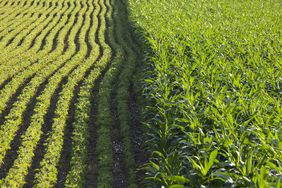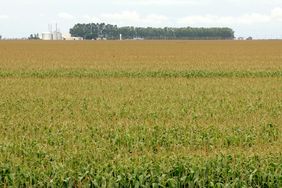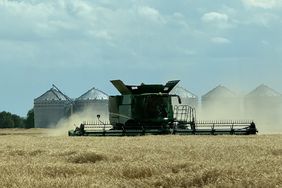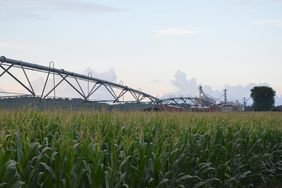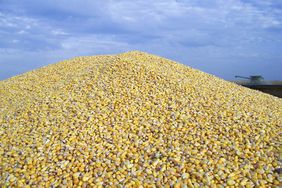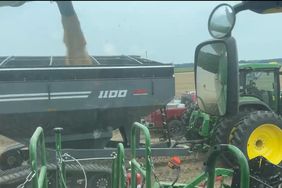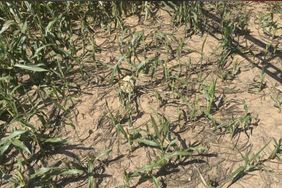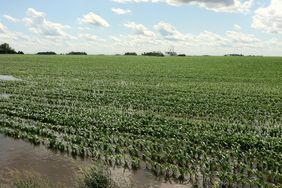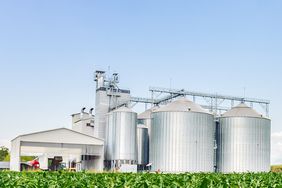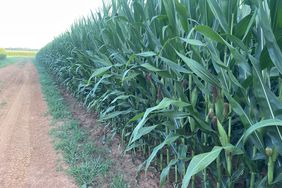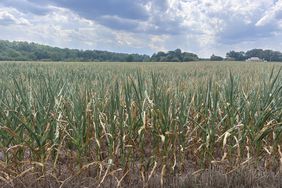:max_bytes(150000):strip_icc()/CornField-WideShot-2000-ebae331ca52449e6a70ddc7c1b5efa01.jpg)
Today the USDA released the 17th Crop Progress report of the 2024 growing season.
Corn crop progress
The USDA says as of July 21, 61% of the 2024 corn crop in the top 18 corn-growing states have reached the silk growth stage. This is up from 41% the week prior and ahead of the five-year average of 56%.
The report says 17% of the corn crop across 17 of those states have reached the dough growth stage. This is up from 8% the week prior and ahead of the five-year average of 11%.
According to the report, the condition of the corn crop in the top growing states rates as follows:
| 2024 Corn crop condition | ||
|---|---|---|
| July 21 | July 14 | |
| Good/excellent | 67% | 68% |
| Fair | 23% | 23% |
| Poor/very poor | 10% | 9% |
Soybean crop progress
The USDA says 65% of the soybean crop in the top 18 growing states have reached the blooming growth stage. This is up from 51% the week prior and ahead of the five-year average of 60%.
Twenty-nine percent of soybeans across all of those states have reached the pod growth stage. This is up from 18% the week prior and ahead of the five-year average of 24%.
According to the report, the condition of the soybean crop in the top growing states rates as follows:
| 2024 Soybean crop condition | ||
|---|---|---|
| July 21 | July 14 | |
| Good/excellent | 68% | 68% |
| Fair | 24% | 24% |
| Poor/very poor | 8% | 8% |
Oat crop progress
The USDA says 95% of oats in the top nine producing states have reached the heading growth stage. This is up from 91% the week prior and in line with the five-year average.
Twenty-two percent of oats across eight of the top producing states have been harvested. This is up from 16% the week prior and ahead of the five-year average of 19%.
According to the report, the condition of the oat crop in the top growing states rates as follows:
| 2024 Oat crop condition | ||
|---|---|---|
| July 21 | July 14 | |
| Good/excellent | 66% | 66% |
| Fair | 23% | 23% |
| Poor/very poor | 11% | 11% |
Spring wheat progress
The USDA says 89% of spring wheat across the top six growing states have reached the heading growth stage. This is up from 76% the week prior but slightly behind the five-year average of 90%.
The report rates the spring wheat crop condition as follows:
| 2024 Spring wheat crop condition | ||
|---|---|---|
| July 21 | July 14 | |
| Good/excellent | 77% | 77% |
| Fair | 18% | 20% |
| Poor/very poor | 5% | 3% |
Winter wheat progress
The USDA says the winter wheat harvest has begun in all the top 18 growing states and is 76% complete. This is up from 71% the week prior and ahead of the five-year average of 72%.
:max_bytes(150000):strip_icc()/CassidyWalter_1-web-83717e5b38194dfa9e314356b6d4c1c2.jpg)
